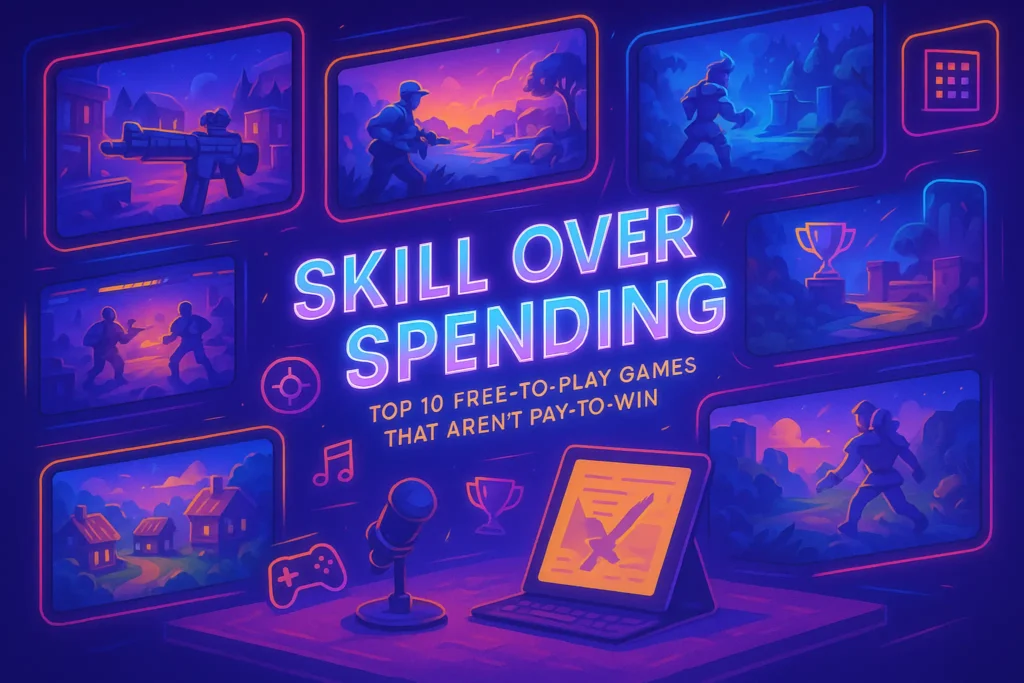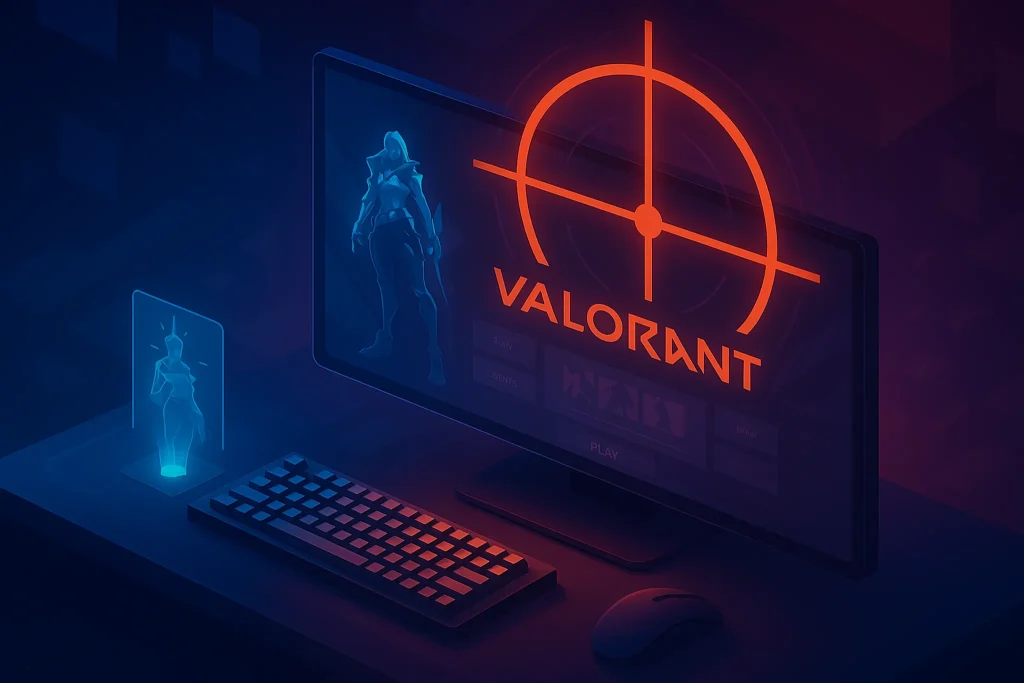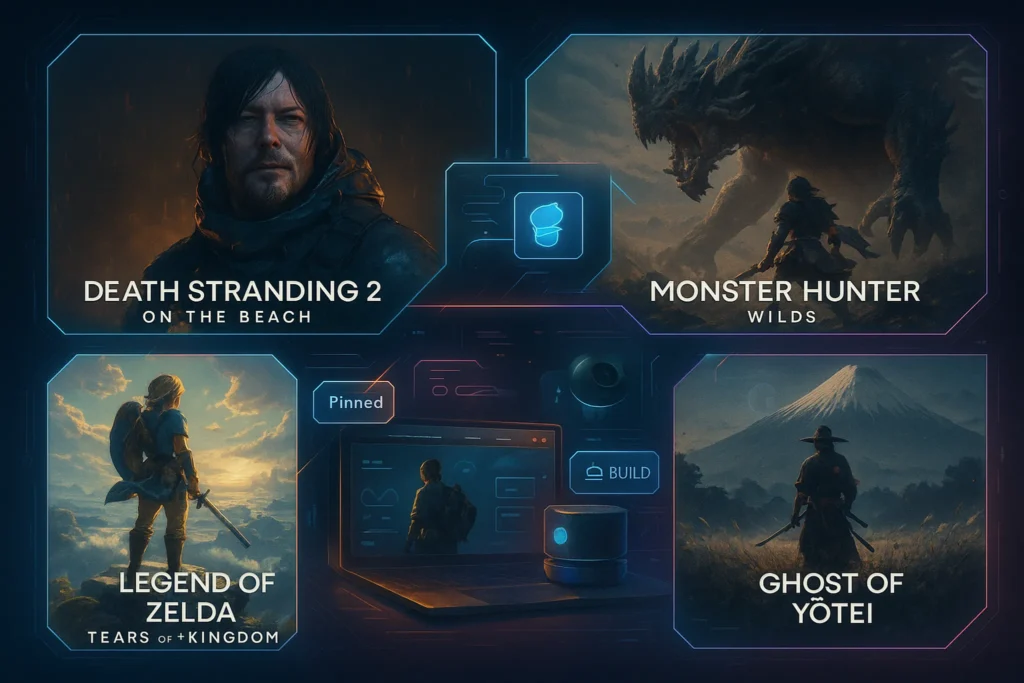Intro:
If you’ve played enough “free” games, you’ve probably been burned by the hidden cost: pay-to-win mechanics. These are the systems where spending money directly boosts your power, giving paying players an edge over those who don’t. The result? An uneven battlefield that rewards wallets over skill.
But in 2025, there’s a refreshing change — a strong roster of games proving that free-to-play doesn’t have to mean pay-to-win. These titles thrive on player skill, strategy, and teamwork, offering a level playing field for everyone.
In this authority-level guide, you’ll get:
-
✅ In-depth breakdowns of 10 top free-to-play, non-pay-to-win games.
-
🧠 Skill Growth Tips for improving without spending.
-
📊 Mini-Comparisons between similar titles.
-
🖥 Hardware Synergy boxes to boost your gameplay experience.
-
💡 How to Spot Pay-to-Win checklist so you can judge any game yourself.
-
🎯 Game Pairing Ideas for your next obsession.
-
🔮 Future Watch for upcoming fair-play titles.
If you love discovering unique, skill-based titles, our Top 10 Indie Games of 2025 guide is packed with games that deliver the same competitive fairness.
🛡 How to Spot Pay-to-Win Before You Waste Time
Before we dive into the list, let’s set the baseline. Here’s a quick checklist to identify if a game is leaning toward pay-to-win:
-
Direct Power Purchases: Can you buy weapons, armor, or abilities that give you a gameplay advantage? 🚫
-
Progression Locks: Does advancement become unreasonably slow unless you pay?
-
Exclusive Gear Stats: Are high-stat items locked behind premium-only events?
-
Competitive Edge Purchases: Does money allow players to skip grind that impacts PvP strength?
✅ Rule of Thumb: If spending money only changes cosmetic appearance, it’s safe. If it changes stats or abilities, it’s pay-to-win.
1️⃣ Valorant – The Tactical Shooter Done Right
Riot Games’ Valorant continues to set the benchmark for fair, competitive FPS play. In Valorant, every agent and weapon is unlockable through gameplay, and money only buys cosmetic skins.
Its precision gunplay, layered strategy, and focus on team coordination make it a hit among competitive gamers. The ranking system reflects your skill, not your spending power.
💡 Skill Growth Tip:
Focus on crosshair placement and pre-aiming common angles. Winning duels in Valorant is often about milliseconds — training your muscle memory pays off faster than any skin purchase.
📊 Mini-Comparison:
| Feature | Valorant | Apex Legends |
|---|---|---|
| Style | Tactical 5v5 | Hero-based Battle Royale |
| Unlocks | Agents via play | Legends via play |
| Monetization | Cosmetic skins | Cosmetic skins |
🖥 Hardware Synergy:
A 144Hz+ monitor makes a massive difference in gunfights. Pair with a lightweight gaming mouse (like Logitech G Pro X) for flick shots.
Pros:
-
Fair monetization model
-
Tight, responsive gunplay
-
Strong esports scene
Cons:
-
Steep learning curve for newcomers
-
Requires strong communication
📌 If you enjoy tactical shooters with high skill ceilings, you’ll also appreciate several entries in our Best Co-Op Indie Games on Steam list that prioritize gameplay mastery.
2️⃣ Warframe – A Free MMO That Rewards Effort
Digital Extremes’ Warframe is proof that grind, when done right, is rewarding. You can earn every Warframe (character) and weapon entirely through in-game play — no gear stats are locked behind payments.
The game’s fast-paced parkour movement, cooperative missions, and expansive star chart offer hundreds of hours of content. Platinum (premium currency) exists, but you can earn it by trading with other players — no real money required.
💡 Skill Growth Tip:
Join a Clan early. They provide research labs where you can craft powerful gear and weapons without extra costs.
📊 Mini-Comparison:
| Feature | Warframe | Destiny 2 |
|---|---|---|
| Monetization | Cosmetics + convenience | Expansions + cosmetics |
| Core Gameplay | PvE co-op + PvP | PvE + PvP raids |
| Pay-to-Win Risk | None | Low (expansions) |
🖥 Hardware Synergy:
A high-refresh gaming laptop or PC makes parkour and aiming smoother — Warframe’s movement is a core mechanic, so frame drops can cost you kills.
Pros:
-
Player-driven economy
-
Massive PvE content
-
Satisfying movement and combat
Cons:
-
Can feel grind-heavy for casual players
-
Steep mod system learning curve
📌 Fans of Warframe’s co-op grind may also love our Top 10 Indie Games of 2025 for unique co-op experiences.
3️⃣ Apex Legends – Battle Royale Without the Wallet Race
Apex Legends by Respawn Entertainment is a fast-paced hero shooter where victory depends entirely on mechanics, positioning, and team synergy. All Legends can be unlocked by playing; paying only unlocks them faster or buys skins.
💡 Skill Growth Tip:
Master movement tech like bunny hopping and wall climbing. These advanced maneuvers help you outplay better-armed opponents.
📊 Mini-Comparison:
| Feature | Apex Legends | Fortnite (Zero Build) |
|---|---|---|
| TTK | High | Variable |
| Movement | Fluid + verticality | Ground + building (removed in Zero Build) |
| Monetization | Cosmetic | Cosmetic |
🖥 Hardware Synergy:
A controller with paddles or mouse with side buttons can drastically improve reaction time for ability use.
Pros:
-
Diverse roster of Legends
-
Engaging, fast-paced combat
-
No stat advantages via money
Cons:
-
Steep skill curve
-
Occasional server instability
📌 Battle royale fans can check our Top 10 Most Anticipated Video Games of 2025 for other competitive fair-play shooters on the horizon.
4️⃣ Dauntless – Monster Hunting Without Pay Pressure
If Monster Hunter had a free-to-play younger sibling, it would be Dauntless. Phoenix Labs delivers a co-op monster-slaying experience where crafting and upgrades come entirely from hunting Behemoths — not buying them.
Players dive into short, intense hunts, collect materials, and forge new gear. The game offers plenty of cosmetic sets, but every power increase is earned through skill and persistence.
💡 Skill Growth Tip:
Learn each Behemoth’s attack patterns instead of relying on raw damage. Knowing when to dodge vs. when to attack makes you far more efficient.
📊 Mini-Comparison:
| Feature | Dauntless | Monster Hunter: Rise |
|---|---|---|
| Price | Free | Paid |
| Progression | Hunt → Craft | Hunt → Craft |
| Monetization | Cosmetic skins | DLC expansions + cosmetics |
🖥 Hardware Synergy:
If you’re on PC, a controller is often better than a mouse/keyboard for melee combat precision. Look for a wired Xbox controller for zero latency.
Pros:
-
Short hunt sessions (10–15 mins)
-
Cross-platform play
-
Frequent seasonal events
Cons:
-
Less depth than paid Monster Hunter titles
-
Repetitive grind for gear
📌 If you like Dauntless, you’ll find similar co-op depth in some entries of our Best Co-Op Indie Games on Steam roundup.
5️⃣ Path of Exile – The ARPG Giant That Won’t Sell You Power
For fans of Diablo-style gameplay, Path of Exile is a dream come true. It’s deep, complex, and fair. Grinding Gear Games monetizes through cosmetics and stash tabs — and nothing you buy will give you an in-game stat advantage.
Its seasonal “Leagues” keep gameplay fresh, with unique mechanics and rewards for every reset. The skill tree is legendary for its size and customization possibilities.
💡 Skill Growth Tip:
Spend time studying build guides early on — the complexity of the passive skill tree can overwhelm new players, and a poor build can slow your progression.
📊 Mini-Comparison:
| Feature | Path of Exile | Diablo Immortal |
|---|---|---|
| Monetization | Cosmetic + stash space | Gear upgrades |
| Player Advantage via Pay? | None | High |
| Community Reputation | Excellent | Poor |
🖥 Hardware Synergy:
A solid-state drive (SSD) significantly reduces loading times — vital for rapid map farming in endgame.
Pros:
-
Massive skill customization
-
Regular expansions
-
Strong community support
Cons:
-
Very steep learning curve
-
Not beginner-friendly without guides
6️⃣ Brawlhalla – Smash Bros-Style Fun Without Pay Locks
Ubisoft’s Brawlhalla is a platform fighter where all characters are earnable through gameplay, and no paid skin changes a character’s stats or hitboxes.
Its deceptively simple controls hide a lot of competitive depth, and it supports both casual play and high-level esports tournaments.
💡 Skill Growth Tip:
Focus on edge-guarding techniques — preventing opponents from returning to the stage is often the fastest way to secure a KO.
📊 Mini-Comparison:
| Feature | Brawlhalla | Super Smash Bros Ultimate |
|---|---|---|
| Price | Free | Paid |
| Monetization | Cosmetics | DLC fighters + cosmetics |
| Competitive Scene | Growing | Established |
🖥 Hardware Synergy:
A wired USB controller with responsive buttons is essential for competitive inputs — avoid high-latency wireless for tournaments.
Pros:
-
Easy to learn, hard to master
-
Large and active community
-
Frequent character additions
Cons:
-
Can feel repetitive for solo players
-
Matchmaking skill gaps
📌 Fans of portable competitive games should check our [Mobile Gaming Tips] for on-the-go skill-building titles.
🎮 Want to Stay Ahead in Fair-Play Gaming?
Join our free weekly newsletter — we handpick the best skill-based games, share pro-level tips, and give you exclusive gaming gear discounts.
No spam. Just pure value for competitive gamers.
🔐 100% privacy. No noise. Only the best fair-play gaming insights from NerdChips.
7️⃣ Fortnite (Zero Build Mode)
While Fortnite is famous for its building mechanics, Zero Build mode removes that feature entirely — leveling the playing field for players who prefer gunplay and positioning over fast construction.
Cosmetics remain the only monetization. All weapons have the same stats for everyone, making competitive balance surprisingly strong in this mode.
💡 Skill Growth Tip:
Master cover usage and third-party timing — Zero Build emphasizes map knowledge and strategic movement.
📊 Mini-Comparison:
| Feature | Fortnite Zero Build | Apex Legends |
|---|---|---|
| Combat Style | Positioning + aim | Movement + abilities |
| Monetization | Cosmetic | Cosmetic |
🖥 Hardware Synergy:
A headset with directional audio (e.g., SteelSeries Arctis) can help you hear footsteps and locate enemies faster.
Pros:
-
Equal gun stats for all
-
Accessible for new players
-
Frequent content updates
Cons:
-
Match RNG (weapon spawns) can still decide fights
-
Cosmetic FOMO for collectors
8️⃣ Halo Infinite Multiplayer
343 Industries brought Halo Infinite multiplayer into the free-to-play era without sacrificing balance. Battle pass items are cosmetic, and weapon spawns are fixed on maps for fair competition.
💡 Skill Growth Tip:
Learn power weapon spawn timers — controlling the Sniper Rifle or Rocket Launcher often decides matches.
📊 Mini-Comparison:
| Feature | Halo Infinite | Call of Duty: Warzone |
|---|---|---|
| Map Control | Critical | Less crucial |
| Monetization | Cosmetic | Cosmetic + bundles |
🖥 Hardware Synergy:
Playing at low input latency (VRR-enabled monitor + wired controller) can make duels feel snappier.
Pros:
-
Classic Halo feel
-
Balanced weapon sandbox
-
Solid map design
Cons:
-
Slower content cadence than competitors
-
Some UI frustrations
9️⃣ Rocket League
Rocket League blends soccer with rocket-powered cars — and since going free-to-play, it has kept all vehicles equal in hitboxes and handling.
💡 Skill Growth Tip:
Practice aerial control in free play mode — being comfortable flying through the air will instantly level up your game.
📊 Mini-Comparison:
| Feature | Rocket League | Destruction AllStars |
|---|---|---|
| Monetization | Cosmetic | Cosmetic |
| Physics Depth | High | Medium |
🖥 Hardware Synergy:
A controller with precise analog sticks is non-negotiable for smooth car control — DualSense or Xbox Series controllers are top picks.
Pros:
-
Completely balanced vehicles
-
Simple concept, high skill ceiling
-
Strong esports scene
Cons:
-
Steep mechanics for beginners
-
Toxicity in competitive queue
🔟 The Finals
Embark Studios’ The Finals is a fresh FPS with destructible environments and creative team combat. The monetization is strictly cosmetic, and success depends entirely on your shooting skill and adaptability.
💡 Skill Growth Tip:
Use environmental destruction strategically — creating new sightlines or collapsing enemy cover can turn the tide.
📊 Mini-Comparison:
| Feature | The Finals | Battlefield 2042 |
|---|---|---|
| Monetization | Cosmetic | Cosmetic |
| Map Interaction | Fully destructible | Partially destructible |
🖥 Hardware Synergy:
A GPU that can handle high frame rates ensures smooth destruction physics — 60+ FPS is ideal.
Pros:
-
Unique destructibility mechanics
-
Balanced weapon stats
-
Fast-paced, team-oriented gameplay
Cons:
-
Smaller player base (new title)
-
Requires strong teamwork
🎯 Game Pairing Ideas – Double the Fun Without Spending a Dime
If you liked one of these titles, here are perfect pairings to keep your skill-based gaming fresh:
-
Valorant → CS:GO 2 (paid) for players wanting another tactical shooter with precise gunplay.
-
Warframe → Destiny 2 (free base game) if you enjoy MMO looter-shooters with co-op missions.
-
Apex Legends → Fortnite Zero Build to switch between hero-based and pure aim-focused battle royale.
-
Dauntless → Monster Hunter: Rise (paid) for a deeper monster-slaying experience.
-
Rocket League → Knockout City (if still available in your region) for more arcade-style competitive sports.
📌 Game pairing keeps skills fresh — switching genres forces your brain to adapt, improving reaction time and decision-making.
🔮 Future Watch – Upcoming Fair-Play Titles to Track
2025 is set to bring several promising non-pay-to-win experiences:
-
Arc Raiders – A cooperative PvE sci-fi shooter promising no gear advantages for paying players.
-
Off The Grid – Battle royale with a story-driven twist, focusing on customization without stat boosts.
-
Project L – Riot Games’ upcoming fighter, expected to follow the fair monetization model of Valorant.
💡 We’ll be covering these in detail in our upcoming Top 10 Most Anticipated Video Games of 2025 so you can jump in early when they launch.
🧠 Nerd Verdict
The idea that “free-to-play” equals “pay-to-win” is outdated. In 2025, we have proof: from Valorant’s tactical precision to The Finals’ explosive creativity, true skill-based competition is alive and well.
For gamers, this means fair fights, long-term skill growth, and communities built on mastery rather than money. For developers, it proves that fair monetization can be profitable without alienating players.
❓ FAQ: Nerds Ask, We Answer
💬 Would You Bite?
Which of these games will you try first? Do you already play a fair free-to-play title we missed?
Drop your thoughts below — your pick might make it into our next roundup! 👇



